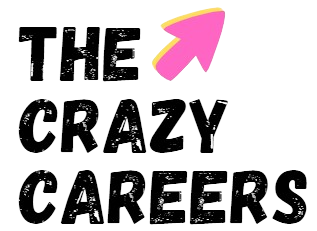Workplace microaggressions are subtle, everyday comments or actions that demean individuals from marginalized groups. They may appear harmless or even polite on the surface. Examples include remarks like, “You’re smart for a woman,” or “You don’t look like you’re from here.” Each comment may seem small, but over time, their impact is damaging.
Like papercuts, one may not hurt—but many leave deep scars. These slights are often brushed off or ignored. But their cumulative effect leads to stress, anxiety, and loss of self-worth.
Join Us | We are Building World’s Largest Student Community
Why Are They So Dangerous?
Initially, one might ignore or overlook a microaggression. However, repeated exposure leads to stress, anxiety, and emotional exhaustion. Their subtle nature makes them hard to call out. As a result, many victims stay silent or second-guess themselves. Consequently, toxic behaviors go unchecked and can become normalized. This emotional burden leads to reduced performance, low morale, and even burnout.
Three Groups Affected by Microaggressions
Not everyone experiences workplace microaggressions in the same way. Based on experience and exposure, employees often fall into three groups: naive newbies, emotionally experienced, and the sensibly sane.
1. The Naive Newbies
This group includes freshers and early-career professionals. They enter the workplace with enthusiasm and idealism. However, when faced with subtle bias or exclusion, they feel confused or disillusioned. Without experience, they often don’t know how to respond. For example, a young woman joined a reputed firm with high hopes. Soon, she found herself in a male-dominated team with a senior who acted inappropriately. Fortunately, she had a mentor who helped her navigate the situation. Thanks to that support, she switched teams rather than quit. Clearly, mentorship is essential for new employees experiencing microaggressions.
2. The Emotionally Experienced
This group includes mid-level professionals who have been around long enough to spot microaggressions. They may have witnessed them or heard about them from peers. As a result, they are more aware and emotionally intelligent. They can usually identify the behavior and its intent. Often, they avoid direct confrontation but choose strategic responses. However, it’s important they don’t stay silent. Their voice and presence can empower others and discourage harmful behavior. By acting as allies, they help victims feel supported and included. Their actions can shift workplace culture in the right direction.
3. The Sensibly Sane
These are experienced employees who have spent many years in the industry. Over time, they may have grown indifferent to microaggressions. In some cases, they may even accept them as normal. However, their awareness and authority can spark change. They are well positioned to start conversations and educate others. Even if they aren’t directly affected anymore, their leadership matters. They can influence policies, lead by example, and build safer work environments. Their role is critical in supporting both newbies and mid-level employees.
Why Silence Is Harmful?
Although it may seem easier to ignore microaggressions, silence is dangerous. It allows negative behaviors to continue and makes others feel unsupported. Moreover, silence often implies approval. By not responding, we become passive participants in the harm. Instead, we must choose awareness, empathy, and action.
How to Build an Inclusive Workplace?
To address workplace microaggressions, companies must act intentionally. First, promote open conversations and encourage feedback. Next, provide training on how to recognize and respond to microaggressions. Then, create support systems like mentoring or employee resource groups. Most importantly, encourage people to speak up without fear. When everyone participates, culture begins to shift. Together, we can foster inclusion, equity, and respect.
Also Read | Are Ethical Hackers Ethical Enough? Let’s Explore
Every Action Counts
Workplace microaggressions may be subtle, but their impact is powerful. By recognizing and addressing them, we protect employee well-being. Let us choose to speak up, support one another, and build workplaces where everyone feels valued.
About the authors: Tanvi Mankodi is an Assistant Professor of Organisation and Leadership Studies at SPJIMR andShreya Seth is a student in the PGDM BM 2024-26 batch and.




